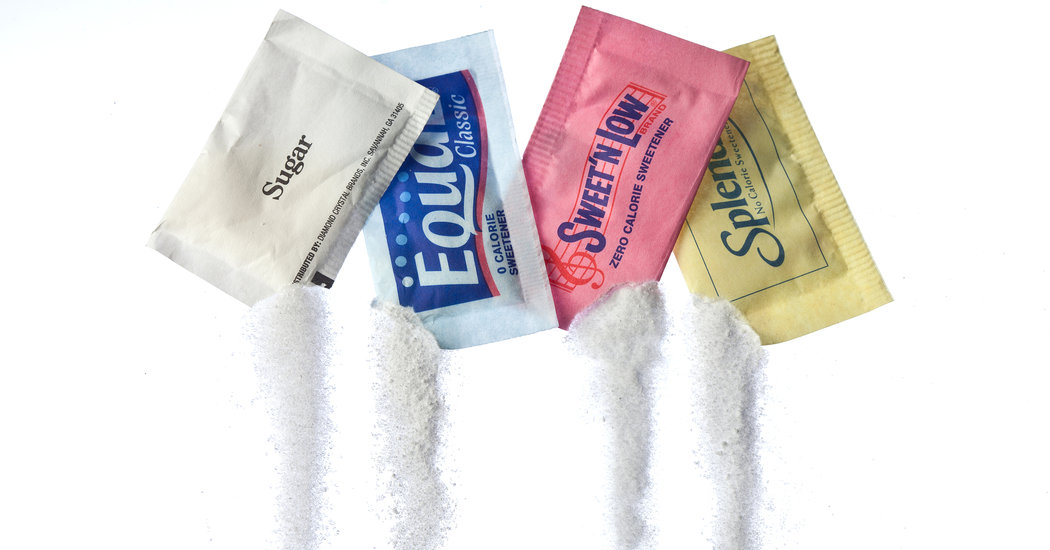Dr. Ludwig theorized that people who carry a lot of abdominal fat might benefit the most from replacing sugary beverages with diet beverages or water because they secrete more insulin, a hormone that promotes fat storage, in response to sugar. “Someone who is lean may not be as sensitive to sugar,” he said.
Debate over the impact of artificial sweeteners on health and body weight has raged for decades. Some of the earliest concerns were sparked by animal research in the 1970s that suggested that artificial sweeteners could cause cancer. But later studies in humans disputed those claims, and the American Cancer Society, which reviewed the evidence in 2016, among other groups, contend that there is no clear evidence of a link between low-calorie sweeteners and cancer in humans.
The impact of artificial sweeteners on body weight has also been controversial. Over the years, some observational studies have found that people who consume a lot of diet beverages have a higher obesity risk, suggesting that artificial sweeteners might fuel — rather than prevent — weight gain. But observational studies can show only correlations, not cause and effect. Reverse causality may be a factor, since people who are more likely to use artificial sweeteners may gain weight for a variety of reasons, such as other dietary factors and lack of exercise.
Randomized clinical trials, which are more reliable, have generally shown that diet sweeteners help prevent weight gain. A clinical trial published in the New England Journal of Medicine found that when children who consumed sugary beverages were assigned to drink artificially sweetened beverages, they had less weight gain and fat accumulation after 18 months than children who continued drinking sugary beverages.
Another clinical trial led by researchers at the University of North Carolina at Chapel Hill found that overweight and obese adults who were instructed to give up sugary beverages for water or low-calorie sweetened beverages for six months lost an average of 2 percent to 2.5 percent of their body weight. But the group that switched to water showed significant improvements in their blood sugar levels, a risk factor for diabetes, while the group that used low-calorie sweeteners did not.
The latest study by Dr. Ludwig and his colleagues is among the most rigorous on the subject to date. Its findings support advice issued by health groups like the American Heart Association, which in 2018 published a science advisory stating that using low-calorie sweetened beverages could be an effective strategy for weight loss, especially for people who are habitual consumers of sugary beverages, which are the largest source of added sugars in the American diet.
But the heart group also cautioned that there was a “dearth of evidence on the potential adverse effects” of the sweeteners. Despite decades of widespread use, it’s still unclear whether consuming them heavily for many years can have unintended adverse health effects. And they are not all the same. Last year, scientists at Purdue University published the results of a clinical trial that compared the effects of sugar and four different low-calorie sweeteners on weight gain in overweight and obese adults.
[ad_2]
Source link


